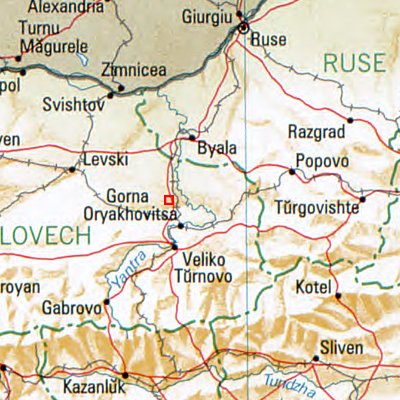loš đak Boža
Ističe se
- Poruka
- 2.144
S obzirom na teoriju o autentičnom keltskom imenu Nemaca, pogledao sam malo kartu Germanije i iznenadio se kad sam na njoj pronašao pleme Naharvala na području današnje Silesije, delu Nemačke prema Češkoj i Poljskoj. S obzirom na razne teorije o poreklu Hrvata, pogotovo iransku zanimalo me da li neko povezuje taj etnonim sa današnjim Hrvatima. Iskreno pronašao sam i više nego što sam očekivao. U jednom blogu, autor je napravio jednu sintezu gotske sa vendskom teorijom o poreklu Hrvata (nešto slično mojoj teoriji o poreklu Srba iz vendskog etnonima )
)
Ako izuzmemo uobičajne hrvatske pokude na srpski račun i neumerenu samohvala i prilično nepovezana trabunjanja koja se često ponavljaju, nekа njegova povezivanja mogu biti zanimljiva. No evo što govori o Naharvalima


http://croatsgothsslavseurope.blogspot.com/
 )
)Ako izuzmemo uobičajne hrvatske pokude na srpski račun i neumerenu samohvala i prilično nepovezana trabunjanja koja se često ponavljaju, nekа njegova povezivanja mogu biti zanimljiva. No evo što govori o Naharvalima
Roman Empire in 125 C.E. The Naharvali tribe ethnonym may quite possibly be directly related to the later appearing and specific 'Harvati/Hrvati' ethnonym that is mentioned in DAI. It is at the least almost without a doubt related to the same local onomastic continuum of the later more precisely named "Harvati/Hrvati" ie: Croats. Also the linear ethnonym continuum of the previously mentioned "Harudske' is now more visible. Taking into account onomastic evolution, written works by Roman/Greek historians and the more than mere coincidence of the approximate geographical locations and ethnonym similarity is obvious and telling. The onomastic markers even coincide with the all important and strategically important mentioned Vistula river. See a closer and more detailed version look of the above map Here. A part of the western advances of the Veneti/Early Slavs. (The soon appearing Croats/Harvati in that vaguely known area would very soon be continuing the onomastic tradition in forming their own specific ethnonym, which would in time also extend to the areas where they were to be found. (Sidenote: It's interesting that in 98 CE Tacitus in his 'Germania' mentions the 'Naharvali' as the keepers of sanctuary of the Lugian federation (the grove to twin gods Alcis). It was claimed and thought at first by historians in antiquity that the tribe was exclusively Germanic, however later counterarguments were presented that either the tribe was proto-Slavic or at the very least included proto-Slavic groups, the area labelled as 'Germania' in antiquity did not always coincide with peoples speaking Germanic languages, again, similar to the previously shown "Harudes" tribe from beyond the eastern borders of Germania. But also, in Croatian, the word "lug" means "grove/small forest". Thus the word Lugii could indicate "forest people". Notice also the location of the Goths in relation to the Venedi/Slavs and the Naharvali and then compare to the previously shown information on this blog about the Goth and Croat connection. All related parts of the greater whole. The main point of the above information and map is to show that those areas of middle Europa is where our personal and specific ethnonym came to be born and was then spread all along as well as even giving their name to today's Carpathian mountains, shown later as the Non-Latinized versions of "Horvatya/Havarthi/Harvaða" in the Gothic epics. Just one more piece of onomastic evidence and piece of the overall puzzle showing the birthplace of today's Croats/Hrvati. Importantly also, the above situation would have been 300 years before the Hunnic invasions even reached central Europe, which according to the previously mentioned Serb historian, would also have been 300 years before the appearance into Europe of the Iranic/Alanic Serbs. The Serbs would have been far out of the above picture and instead be located around modern day Iran and Azerbaijan by the southern end of the Caspian Sea. Special thanks for the above information to Hana, Petar and Marek at the Palacký University of Olomouc, Czech Republic and Valeriya, Darya, Vitaly and Pavel at Lomonosov Moscow State University. More on this at the links below. (Note: Again, the earliest designated name for previously unknown Slavic peoples by Roman/Greek writers was the "Veneti")

http://croatsgothsslavseurope.blogspot.com/
Poslednja izmena od moderatora:

